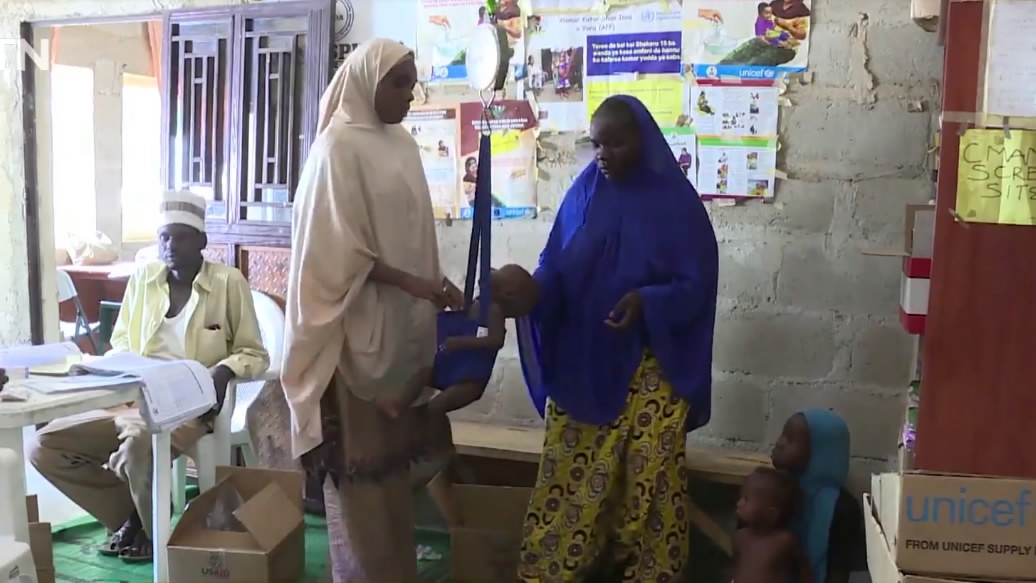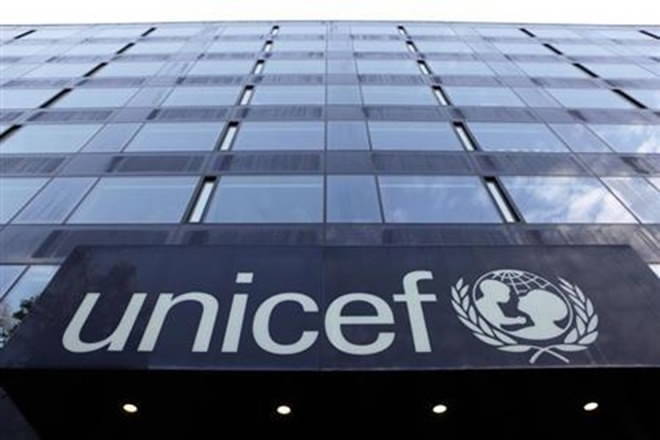By CGTN Africa
The return of Boko Haram poses a serious threat to the humanitarian crisis in Nigeria's northeastern regions, which is already at alarming levels. The United Nations Children's Fund (UNICEF) has already warned that close to half a million children could die of malnutrition before the end of the year.
Urgent humanitarian assistance is needed. However, with a possible renewed insurgency, getting aid in will be even more difficult.
Bala Umar is the latest child to be brought to a children’s clinic in Dalori IDP camp near Maiduguri, the capital of Borno state.
He is having difficulty breathing and suffering from diarrhea, but medical tests have shown that he is actually suffering from severe acute malnutrition.

A staff member in a children's clinic in Dalori IDP camp weighs Bala Umar. /CGTN Photo
At only nine months old, his arms are very thin and he weighs below six kilograms. A healthy boy of his age should weigh between seven to 10 kilograms. Immediately, he is enrolled into a food and nutrition program to stabilise him.
“They’ve given me some food supplements that would make him get better and I will try hard to ensure he is better cared for,” said his mother.
“Truly it’s not easy. I need to make sure he’s better fed. I have no source of income, just what I get here in camp to sustain me.”
UNICEF and partner organisations say hundreds of thousands of children are suffering from acute malnutrition, but new cases keep emerging.
A recent UNICEF survey noted that some 2.5 million children in Northeast Nigeria are facing starvation and 450,000 of them could die if more aid is not made available.

UNICEF said they are projecting up to 450,000 children will suffer from severe acute malnutrition if they do not receive lifesaving care. /Reuters Photo
Harriet Dwyer, spokesperson for UNICEF, said that “the situation here in the Northeast is still dire, the security situation is of extreme concern for organisations like UNICEF, this year we are projecting up to 450,000 children will suffer from severe acute malnutrition if they don’t receive lifesaving care.”
The full extent of the humanitarian crisis caused by years of Boko Haram insurgency is still difficult to tell. Although the military insists that Boko Haram controls no territory in the Northeast, however vast parts of the region remains inaccessible to aid workers.
In some of those hard to reach areas, the UN says the humanitarian conditions could be even worse.
10276km










